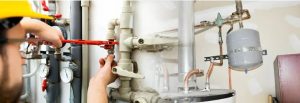Table Of Contents
Electric Or Gas Heating?
Nowadays, there are different methods of heating in people’s homes. One type is electric heating which, as the name implies, uses electricity to generate heat. The other type of heating is gas heating, which transfers heat through gas combustion. Often, homeowners find themselves cornered, wondering which is better between gas and electric heat.
These two are very competitive, and there is a lot to consider before choosing one from the other. In this article, we’ll discuss gas and electric heat systems as well as the pros and cons of the two options. But first, let’s start with gas heating. Read on!
Gas Heating Systems
There are several types of gas heating systems. Thus, the dilemma with choosing a heating option doesn’t end with gas or electricity. The different gas heating systems include the following:
Coal Gasification Plant
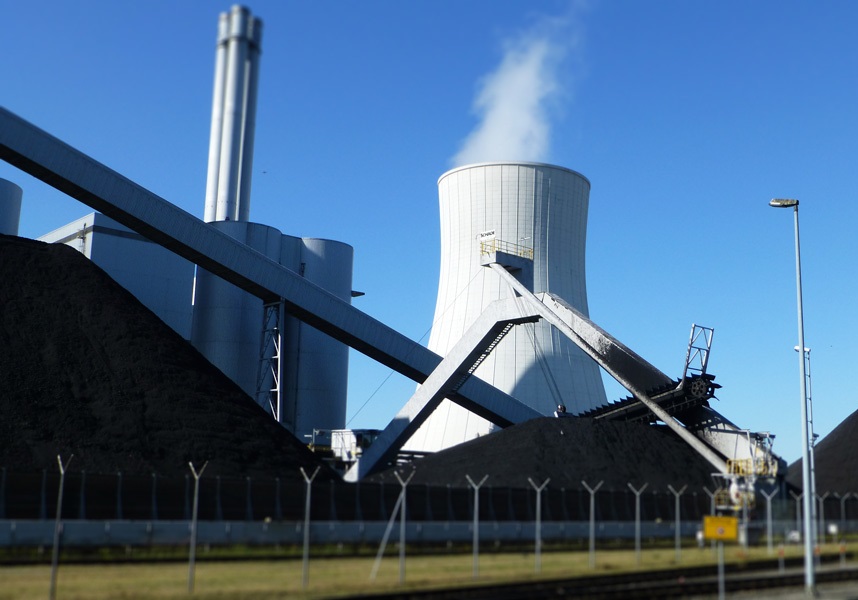
A coal gasification plant is an older method used to create fuel for homes. It uses steam-producing turbines that combust coal into energy. The system utilises several products that result from the process: water vapour, carbon dioxide, carbon monoxide, hydrogen sulfide, and ammonium compounds.
However, this method is not commonly used today due to the high number of pollutants it releases during the process. As we all know, most societies are trying to reduce pollution in all forms, especially air pollution.
Hydrocarbon Furnace
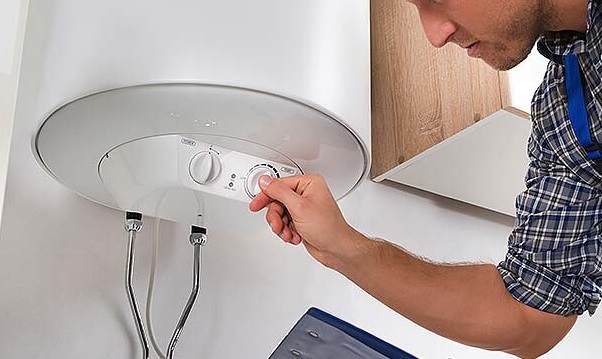
Hydrocarbon furnaces were also once standard for heating homes, especially when electricity was out-of-reach for many people. It heats water by burning natural gas or propane, transferring energy into the boiler system. The system can provide enough energy for both space heating and hot water in most homes. However, it is environmentally unfriendly since it emits greenhouse gases like carbon dioxide and methane (among other harmful toxins).
Natural Gas Furnace
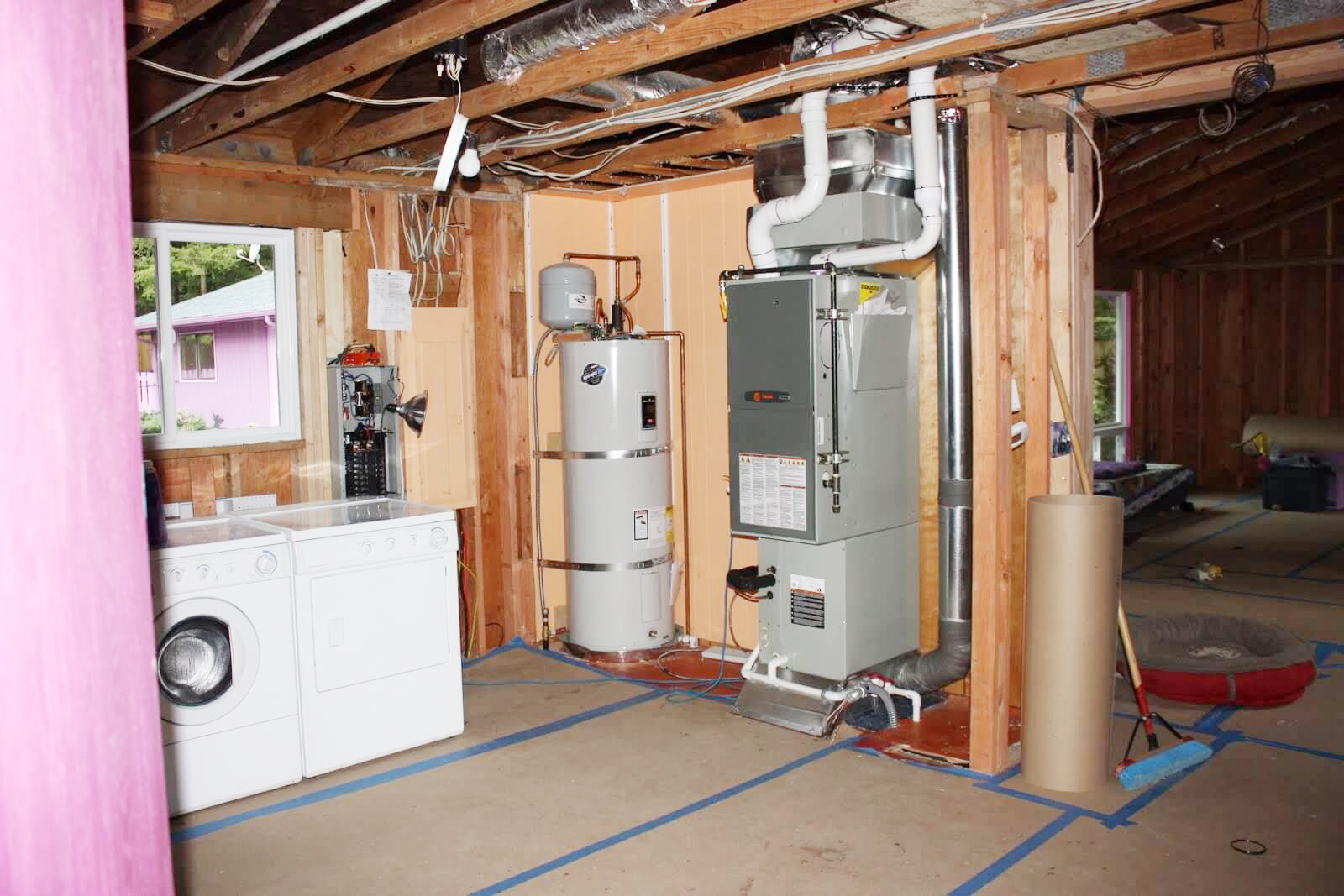
The use of natural gas furnaces is one of the most popular gas heating methods today. It was a preferred choice in the 19th century until more energy-efficient central air conditioning systems became a trend. However, it is still a reliable and cost-effective way to heat homes year-round. The furnace is supported by a duct system made from metal or fiberglass that distributes warm air throughout different rooms in the home. A blower circulates the air through the ducts and warms up spaces near vents located on the house’s exterior walls.
Natural Gas Boiler
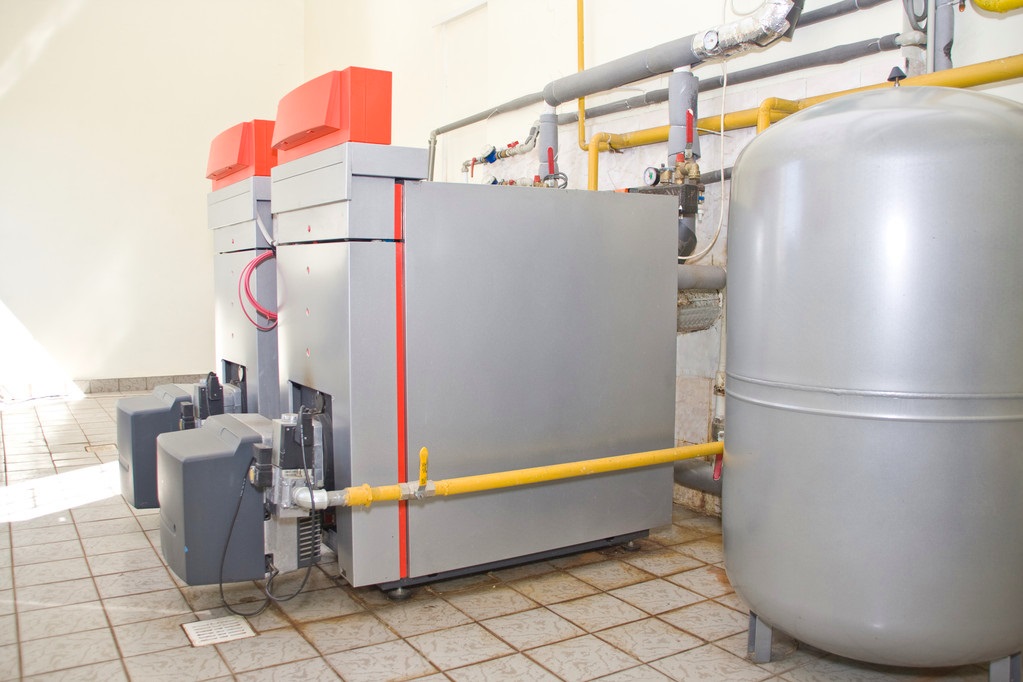
Natural gas boilers are another option for homeowners looking to benefit from natural gas. There are two types of natural gas boilers; closed tank and open venting systems. Closed tank boilers have hot water stored inside the tank, allowing homeowners immediate access to hot water.
Open venting systems offer the same benefits, but they allow space for heating in addition to hot domestic water. However, sometimes you may have to get supplemental heaters in colder months.
Heat Pump Furnace
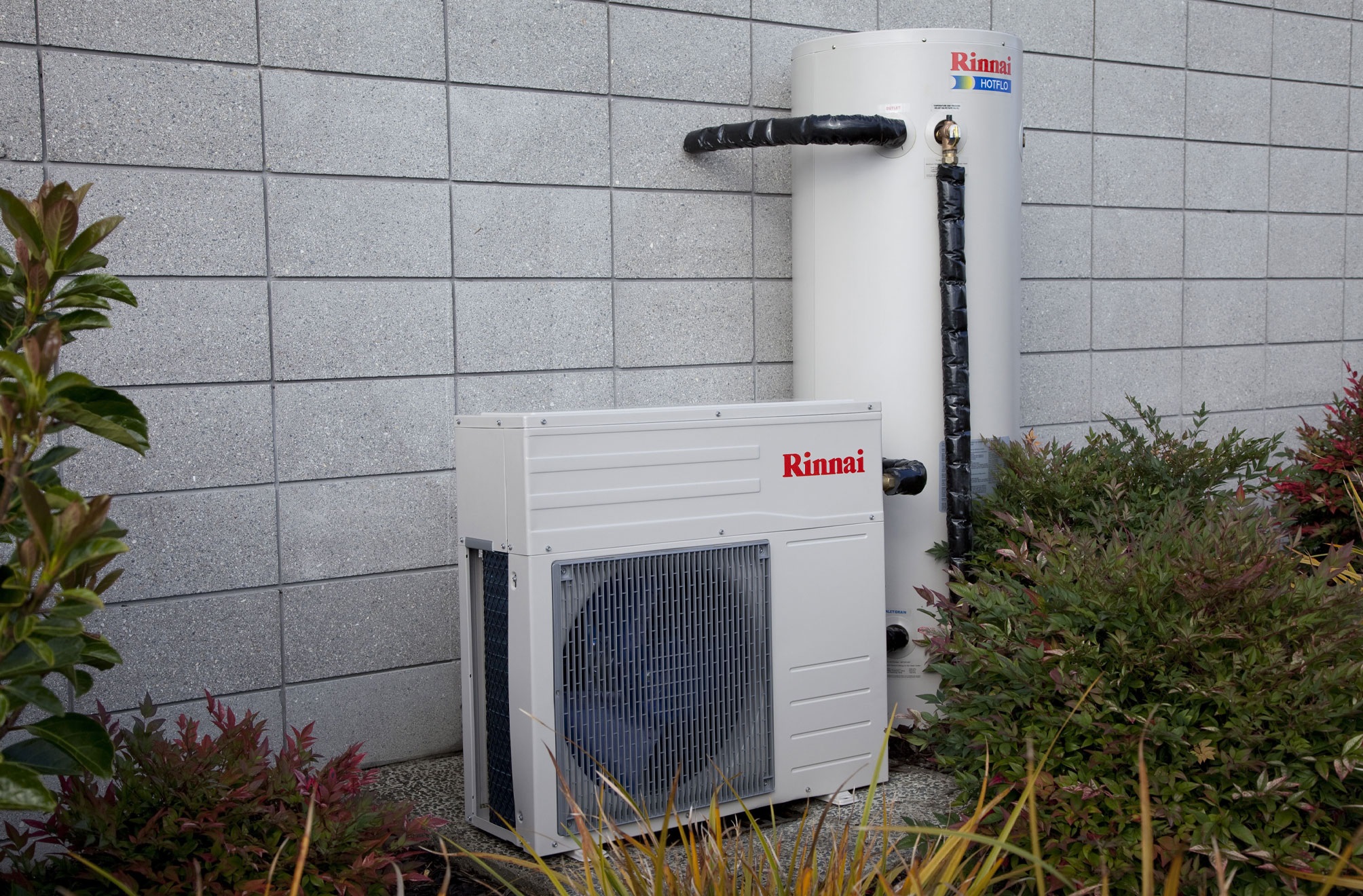
Heat pump furnaces were developed after introducing new building code standards that required all homes to be more energy-efficient. It is a combination of heating and cooling systems that contain both an outdoor and indoor unit (unlike other systems, which only utilise one or the other). It warms up homes with electricity rather than natural gas or oil. This results in significant savings because it uses about 30% less energy to provide warmth throughout the house, unlike traditional heat sources.
Heat pumps circulate liquid or pressurised gas through an expansion device before releasing it as warm air via forced-air ducts or convection currents inside the rooms. Still, they’re capable of increasing the humidity within spaces and improving air quality through filtration. However, heat pumps can be costly to operate because they require a power source.
Central Air Conditioner
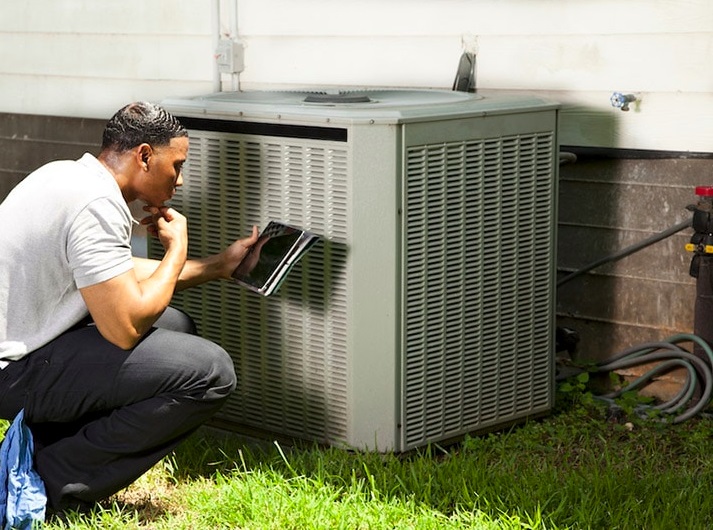
Not many people consider central air conditioning as a type of gas heating, although it does fall into this category, depending on what kind of supplementary heat source is involved. Central air conditioning typically does not heat homes, but you can combine it with other heating systems that do. For instance, homeowners may opt to use their central air conditioners as their primary cooling sources during the summer months and turn on supplemental heaters whenever necessary.
This setup is popular because it eliminates the need for switching between heating methods depending on the season. However, it is somewhat costly because homeowners will likely use more energy due to the high running cost for multiple units simultaneously (i.e., central AC unit and heater).
Advantages Of Gas Heating
Cost
The general cost of gas heating depends on the type of gas heater installed. Gas heating is typically more efficient than electric heating because it does not require circuit boards and wires. This means that it will save you money on energy bills during long-term usage. This is one of the distinguishing features when you opt for gas heating systems. They may seem expensive in terms of upfront costs, but they are more affordable to run in the long term than electric heating systems.
Durability
Gas heating is more durable because it does not have any electrical parts like the ones in an electric heater. This makes gas heating a better option for those who live in areas with a lot of dust and dirt since these elements will not affect the heater’s functionality over time.
Cleanliness
Gas heaters do not burn up dirt particles from their heat sources. This means that people with asthma or any other respiratory problems may be better off choosing gas as their primary source of warmth.
In addition, gas heat provides a cleaner environment because there are no dirt elements to clog up air vents within a home. Finally, gas heat can be used in almost any setting (e.g., even close to the ocean) without worrying about electric shocks because it does not involve electricity.
Disadvantages Of Gas Heating
All good things have their drawbacks as well. Here are the common disadvantages of using a gas heating system:
Cost
Although the general cost of gas heaters is less expensive, the initial price is very high. Moreover, homeowners tend to spend money on the installations since the system is somewhat complicated to install. It is never advisable to handle the installation of a gas heating system yourself as anything could go wrong, and you might overlook the dangers until it’s too late.
For instance, you may install the gas heater incorrectly causing the release of toxic gas into your home. These gases can be very harmful to breathe in. Contact a professional plumber or gas installation service near you to avoid such risks. Doing things yourself is great, but sometimes, leave the delicate stuff to the professionals.
Clunkiness
Gas heaters are large and cumbersome objects, meaning they will not fit into smaller spaces within a home. In addition, people with mobility issues often find gas heaters challenging to work with because the equipment requires manual operation rather than being easily moved from room to room.
Disconnection
If you do not have your gas source hooked up directly to the heater itself (e.g., through propane tanks) or if there is a power outage throughout your area, it can become expensive for you to keep your heating system working. The heating system requires hookups directly at the furnace to remain operational. This increases the amount of money that you will need to spend to keep your home warm.
Electric Heating Systems
As mentioned earlier, electric heating involves the use of electricity to heat homes. Similar to gas heating, electric heating has several types of heating systems. Below are some common electric heating systems.
Floor Heating
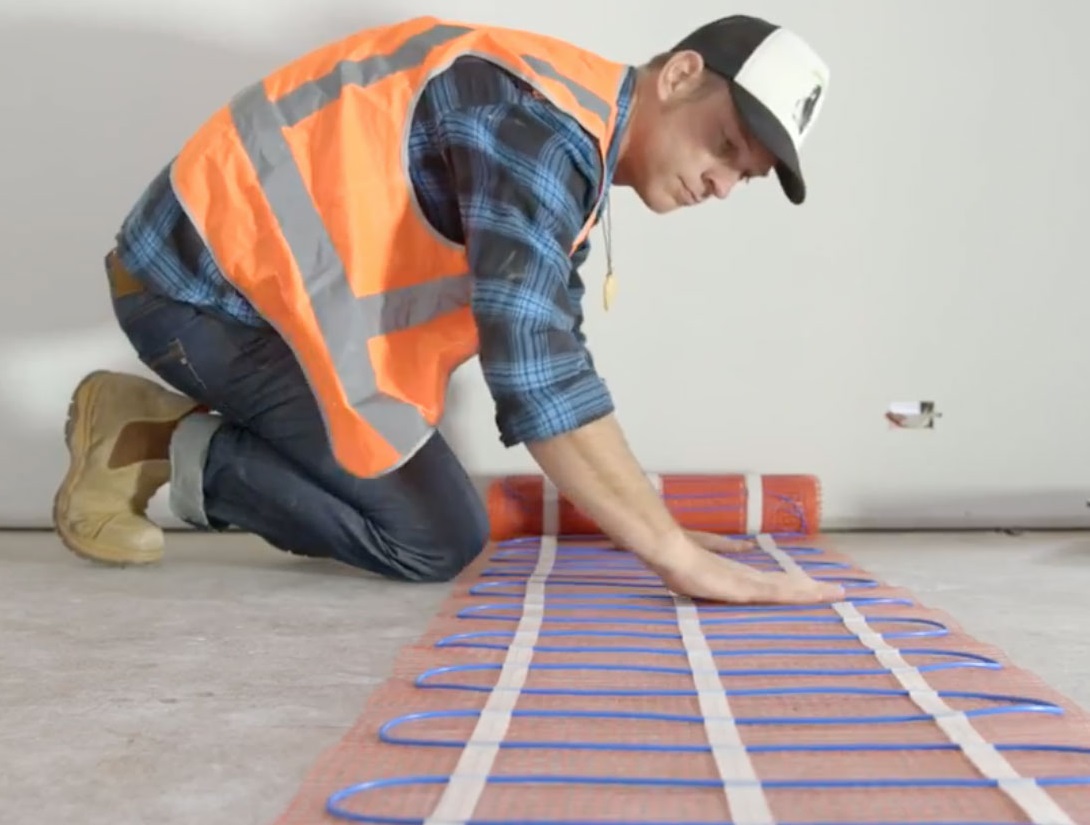
This is the most used form of electric heating. It consists of networks of electrical resistance wires embedded in unique flexible mats. You can unroll these mats over concrete slabs or suspend them from the floor structures above to heat individual rooms and zones within homes and buildings.
They provide even heat distribution throughout and maintain an even temperature, compared to other forms of space heating, such as warm air systems. These other forms of space heating tend to go through cycles of high and low temperatures. You can often find electric under-floor heating mats as accessories for standard forced-air gas furnaces.
Baseboard Heating

Electric baseboard heating is another cost-effective method for providing interior comfort in homes and businesses, especially poorly insulated windows and prevalent drafts. The drawback is that it’s impossible to control individual heat zones within a mechanism consisting of only one zone.
Radiant Ceiling Heating
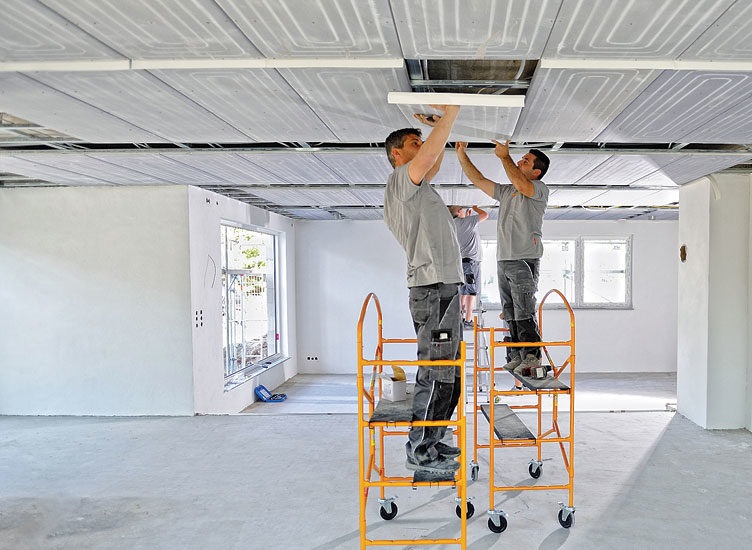
Electric radiant ceiling heating is an excellent way to maintain comfort throughout your home or office, helping you save money on utility costs and enjoy optimal indoor climate control. With these systems, electric wires run behind the surface of a special radiator-like panel suspended from the ceiling. Like other forms of electric heating, these systems offer more even distribution of heat than forced-air furnaces.
Oil-Filled Radiator
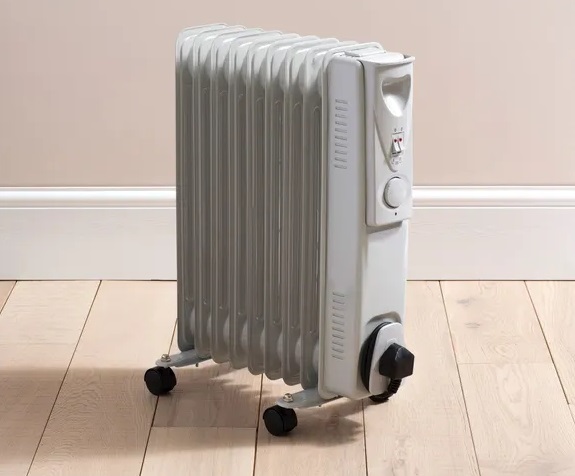
This heater uses electrically-resistant oil as the source of heat. It is prevalent in supplemental central heating in large spaces such as warehouses and gymnasiums that can accommodate them. You can use them in small spaces as well.
Oil-filled radiators are forms of convection heaters because hot oil circulates through the radiator while cool oil draws out at the other end, where it’s heated and then drawn back in again.
Fan Heater
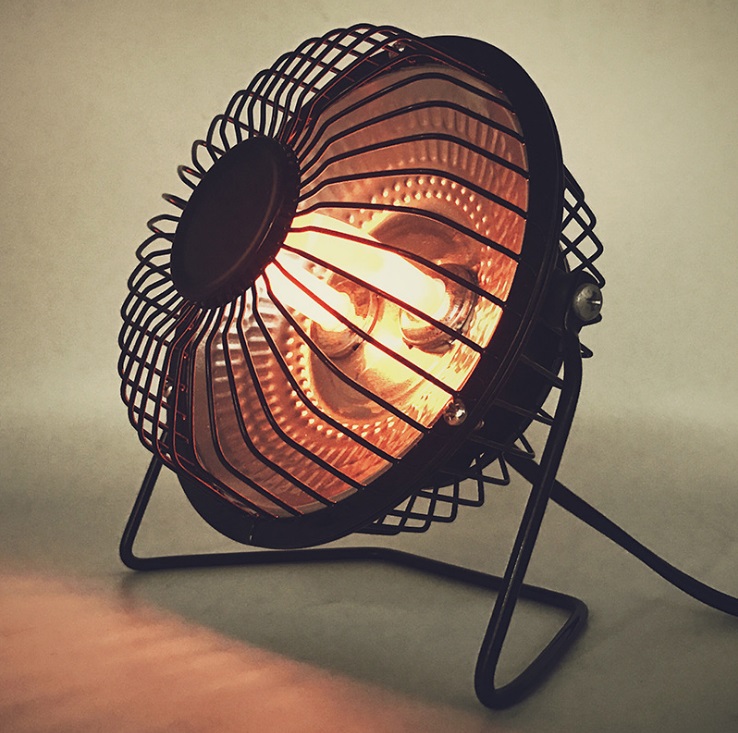
Electric fan heaters use a powerful electric fan to circulate air quickly and evenly throughout spaces up to 800 square feet (similar in size to standard rooms). They provide maximum comfort within minutes. Because they limit surface temperatures to less than about 65 degrees Celsius, there is no risk of burns or fires.
However, you should keep these units away from flammable materials such as curtains and carpets. The heater can also accumulate deposits that affect the heating performance after long periods of use.
Radiant Heater
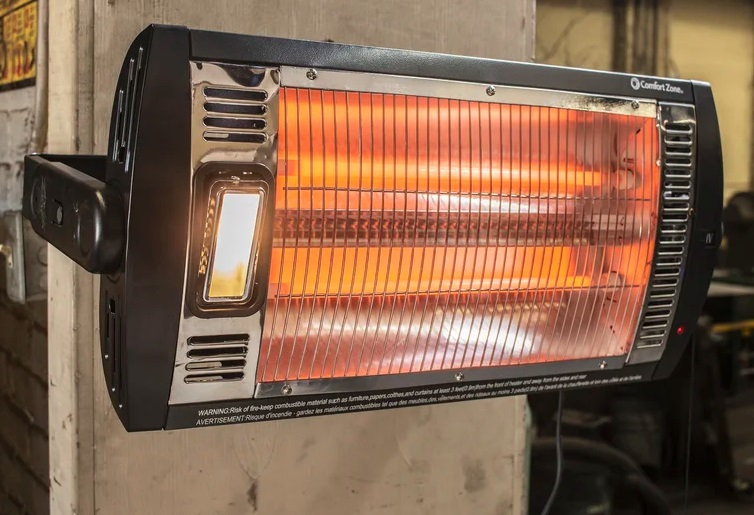
Electric radiant heaters use an electric heating element to warm a thin metal sheet, warming the air in the space. These systems are highly efficient, and you can use them as standalone heating units or supplementary heaters for large rooms, including garages with attached workshops and commercial kitchens.
Infrared Quartz Heater
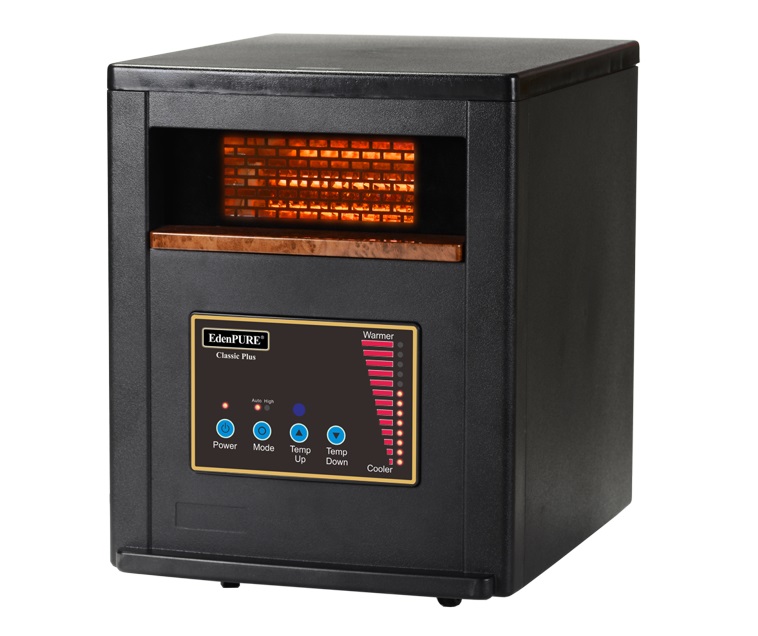
Although they may look like light bulbs emitting a bright glow, quartz heaters emit infrared waves that activate molecules within the objects they’re directed towards, such as people or pets. As a result, it causes the objects to feel warmer through radiant heat without significantly increasing air temperature. Such heaters are most prevalent during colder months to create a cozy atmosphere and boost heat during the summer.
Micathermic Heater
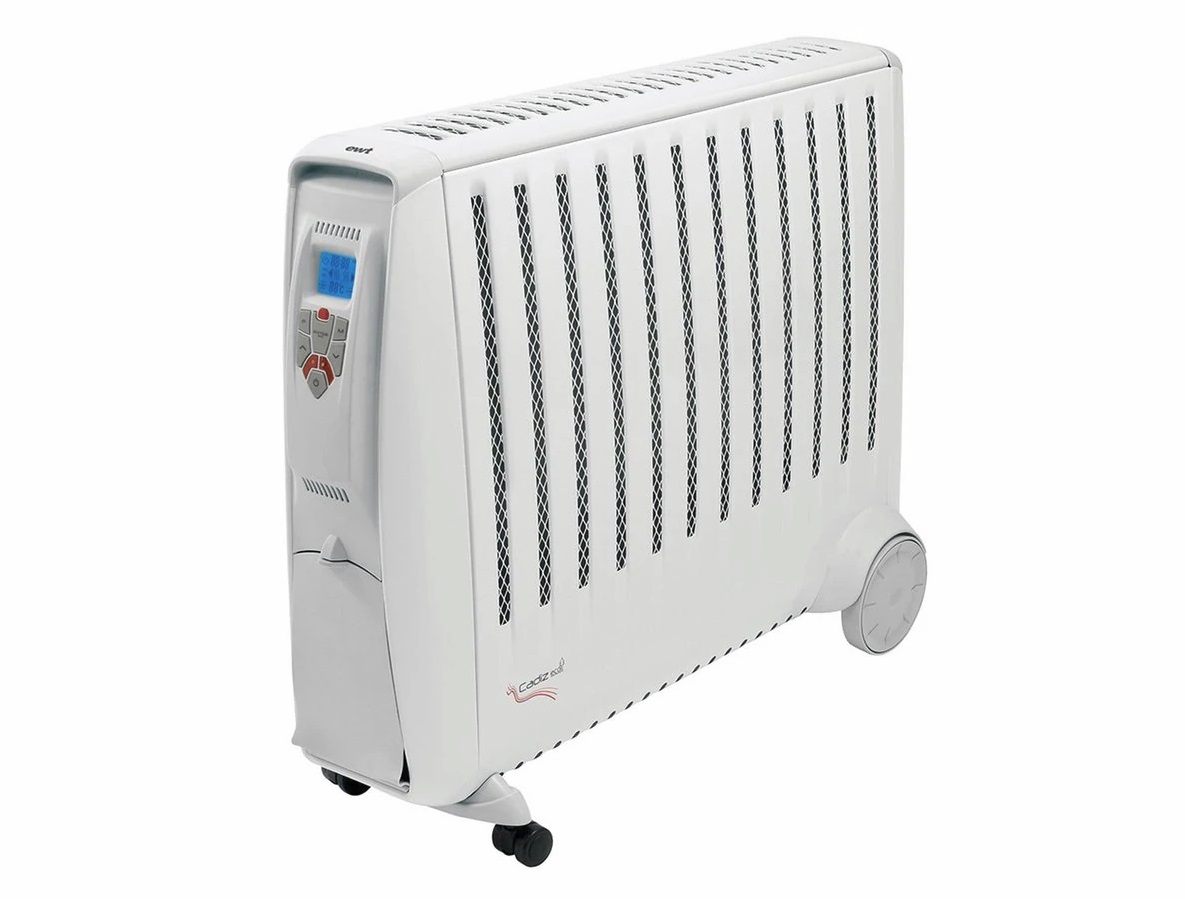
Also called a ‘space heater,’ Micathermic systems use a special ceramic coating to absorb and transfer energy from a heating element into a thin metal core that emits infrared waves. The metal core is then encapsulated between two sheets of glass, which protects it against accidental contact while also conducting electricity for operation. Micathermic heaters are safe, clean, and efficient, but because they emit minimal surface noise and vibrations, some users complain about feeling cold when using them at their maximum setting.
Window Heater
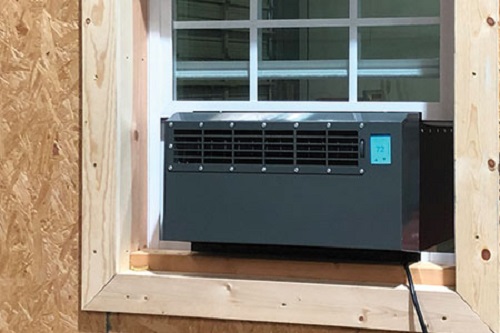
Electric window heaters are small devices that fit inside standard windows and use radiation to emit warmed air into rooms. They have no fan blades or other moving parts, making them virtually silent when in operation.
However, they’re not recommended for use during cold weather because their heating capacity is insufficient for low temperatures. They also only work with stationary windows. Therefore, if there are screens on your window, you will need an alternative form of electric heating.
Radiant Panel Heater
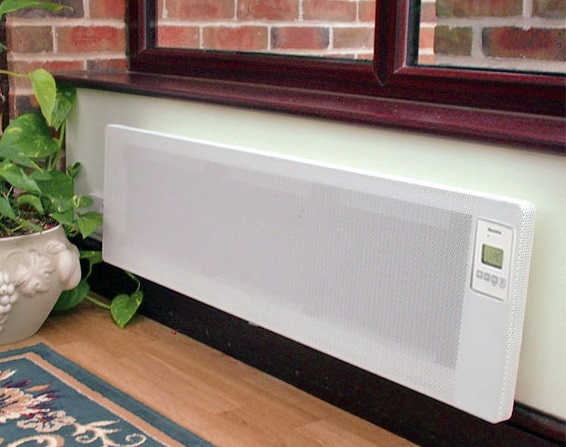
Similar in concept to traditional electric under-floor heating mats, these radiant panels consist of a series of straight, flat tubes or strips mounted behind a metal panel and covered with reflective foil.
You can place them in the ceiling or hang them from the walls and turn them on when needed. Radiant panels offer many advantages over traditional forced-air furnaces because they respond quickly to changes in room temperature and provide an even distribution of heat throughout the space.
When it comes to fast heat and superior safety and convenience, radiant panel heaters may be one of the ideal types of electric heating. They use a quartz tabletop device to project warmth with electromagnetic waves. You can use them anywhere in the home, and around children and pets.
This is because they keep surface temperatures below about 50 degrees Celsius. Radiant panel heaters also shut off automatically when tipped over. This proves to be very helpful as kids or pets may mistakenly knock over the heater, and if it’s still on, this can easily cause a fire.
Ceramic Heater
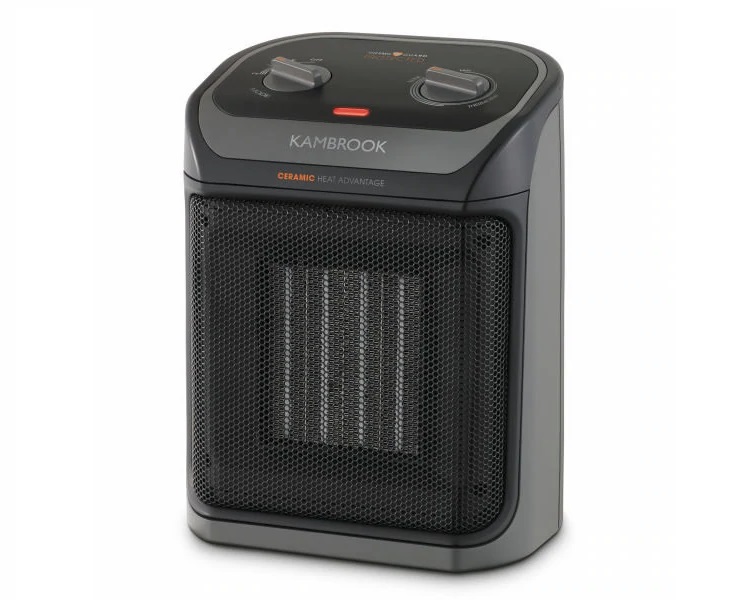
Electric ceramic heaters use infrared rays to produce warmth, which circulates throughout rooms via convection currents. Although ceramic heaters do not have blades, some models include an ionizer that circulates ions into the air for additional comfort benefits. The primary drawback of ceramic heaters is their tendency to warm up objects in rooms before the air, making them an uncomfortable heating option for some people.
Advantages Of Electric Heating
Efficiency
Electric heaters are generally more efficient at providing warmth and maintaining a warm atmosphere. Most people turn on their electric heater before leaving for the day and return home to a warm house. The air would have already begun cooling down with gas heating due to a delayed response from the gas heater waiting for the air to cool down first.
Controls
With an electrical system, one simply needs to power off their electric heater with a switch on the wall or remote-control device if they want to shut it off during their absence. Therefore, you need not worry about turning off the fuel source before leaving, like one would have to do with a gas heater (if not done at the tank) by flicking the switch on the furnace.
Cost-Effective
Some models of electric heaters will come equipped with their heating elements and fans to move warm air around a room quickly. They also allow users to control how much power they want to use. As a result, it saves money during their usage time (e.g., low/high/off).
The only disadvantage of these units is that they cannot be moved from room to room as easily as a gas unit can due to lack of mobility without connecting them directly into an electrical socket somewhere.
Disadvantages Of Electric Heating
Efficiency
If you leave it on, an electric heater will continue to run after you leave home. You will need to turn it off when you’re back to reduce the temperatures to a more comfortable level. As a result, they are less efficient compared to gas heaters. This means that gas heaters are cheaper than electric over long periods.
Environmental Impact
Electric heaters burn dust particles that have settled on surfaces. Therefore, the use of electricity is not a clean way of heating homes. However, both electric and gas heating options are dependable when it comes to providing warmth.
Maintenance
Electric heaters require maintenance, such as changing out dirty filters every few months or so. They can also be expensive because they will often have circuit boards that need replacement over time.
Cost
Electric heating is typically less efficient than gas heating (because it requires circuit boards and wires). Therefore, even though the initial cost of some electric heaters is lower, the bills are higher during long-term usage.
Electric Vs. Gas Heating
Gas heating provides many advantages over electric heating, including cleanliness and efficiency. The only real disadvantages are immobility without installation at the furnace itself and the potential costs of propane tank refills. Gas heaters also need to be installed and maintained by professionals, so if you decide to go with gas heating, reach out to a professional gas plumber to help.
Electric heaters tend to be less expensive in terms of initial hookup costs. However, they also require more energy overall during usage time because they must be plugged into an electrical socket somewhere within a room or throughout a home. Most homeowners typically view gas heating as being better than electric heating when providing warmth for personal spaces like bedrooms, living rooms, kitchens, etc.
On the other hand, people may choose electric options for larger homes (e.g., hallways, attics). Therefore, it is really up to you to choose what is best for your home and heating needs; just ensure you contact a professional for installation once your choice is made.







